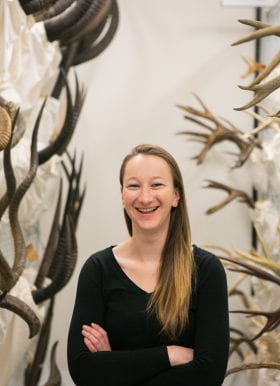
Elizabeth Carlen
WashU
- Email: carlen.e@nospam.wustl.edu
Elizabeth Carlen is an evolutionary ecologist with an interest in urban evolution and ecology across taxa. While she has a particular interest in mammals, she has also worked with anoles in Puerto Rico and pigeons in the Northeastern United States. The New York Times even dubbed her “The Pigeon Stalker”.
As a Living Earth Collaborative Biodiversity Postdoctoral Fellow, Elizabeth works with Dr. Jonathan Losos (WashU) to examine the influence of urbanization on the evolution of eastern gray squirrel in St. Louis.
Learn more about Elizabeth’s work.

Shawn Thomas
WashU
- Email: shawnt@nospam.wustl.edu
Shawn K. Thomas is a plant evolutionary biologist interested in the evolution of flowering plants, with a particular focus on genome duplication (polyploidy) and its role in adaptation, stress tolerance, and diversification. His research centers on comparative genomics and phylogenetics within the mustard family (Brassicaceae), and he has also contributed to broader phylogenomic studies across other plant lineages.
As a postdoctoral fellow with the Living Earth Collaborative, Shawn works across WashU, the Missouri Botanical Garden, and the Saint Louis Zoo, using genomic approaches to study biodiversity and support conservation efforts in both plant and animal systems.
Bluesky: shawnkthomas.bsky.social
Past LEC Postdoctoral Fellows
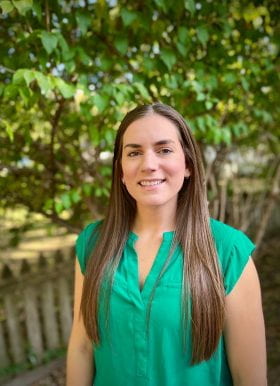
Kara Andres
Assistant Professor, School of Biological Sciences, Illinois State University
Kara Andres is an aquatic ecologist who applies molecular approaches to study aquatic biodiversity, the spread of invasive species, and the ecological consequences of human impacts in freshwater systems. Her research has explored the use of environmental DNA (eDNA) approaches to study the population genetics and abundance of invasive fishes.
Learn more about the Andres Lab at Illinois State University.
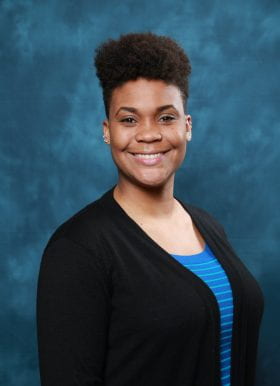
Kaylee Arnold
Postdoctoral Research Associate, WashU
- Email: akaylee@nospam.wustl.edu
Kaylee Arnold is a disease ecologist who studies how anthropogenic disturbances impact host-associated microbial communities and infectious disease transmission. Her research has previously explored the relationships between the gut microbiomes of insect disease vectors, deforestation, and vector-borne disease transmission risk.
Bluesky: BlackEcologist.bsky.social

Matthew Austin
Curator of Biodiversity Data Herbarium, Missouri Botanical Garden
Matthew Austin is the Curator of Biodiversity Data at the Missouri Botanical Garden, where he helps oversee digitization of the Garden’s herbarium and runs a specimen-based research program.
Learn more about the Austin Lab at Missouri Botanical Garden.
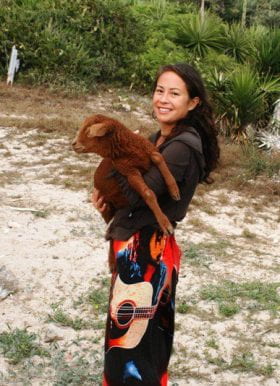
Jessica Carag
Program Director, Serious Communicable Diseases Unit, Division of Infections Diseases, Emory University School of Medicine
Jessica Carag is a veterinarian and One Health practitioner with a passion for global health and development. She is particularly interested in the effects of smallholder livestock health and related cultural practices on food security and infectious disease transmission in the developing world.
In addition to her DVM, Jess received a master’s degree in public health with a focus on emerging infectious diseases. She has worked on research projects ranging from clinical HIV drug trials to parasitology of wild primates. Jess has spent extensive time in Madagascar assisting with field research on wild brown mouse lemurs and as a Peace Corps Volunteer teaching English and promoting community awareness of local conservation issues in the deep south of the island.
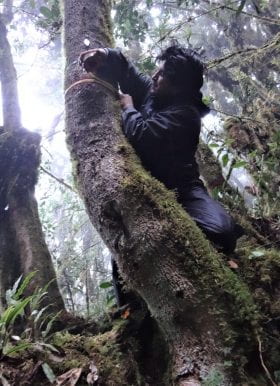
William Farfan-Rios
Biodiversity Fellow in Forest Ecosystems in the Andes-Amazon, Andrew Sabin Center for Environment, and Sustainability, Wake Forest University
William Farfan-Rios is an avid forest ecologist with long-standing field experience. His research is focused on the study of tropical tree communities’ composition, dynamics, distribution and their responses to global change. He has been coordinating and leading field campaigns and research projects in the Andean-Amazonian elevational transect established by the Andes Biodiversity and Ecosystem Research Group.
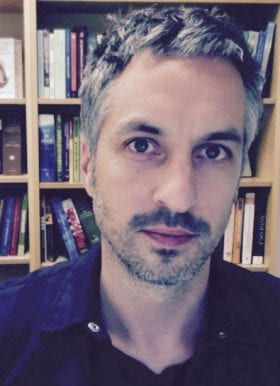
John Grady
Postdoctoral Research Associate, The University of Maine
John Grady is an ecologist interested in how physiology drives broad patterns of diversity across space and time. His research includes work on shark, dinosaur, and shrew thermoregulation, predator-prey interactions, and global biogeography.
Learn more about John’s work.
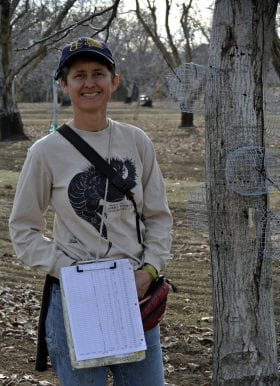
Sacha Heath
Senior Ecological Scientist, San Francisco Estuary Institute
Sacha Heath is a conservation ecologist who conducts research to inform and evaluate biodiversity conservation. Her studies have taken her from Alaska to Antarctica and from pristine wilderness areas to human dominated working lands. While Sacha has a soft spot for feathered creatures—and birds have been the focus of most of her research—she is also fascinated by complex ecological interactions involving multiple taxa.
Learn more about Sacha’s work.
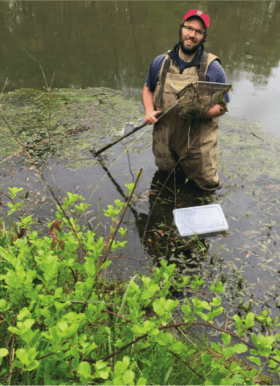
Michael Moore
Assistant Professor, Department of Integrative Biology, University of Colorado-Denver
Mike Moore is an evolutionary ecologist and eco-physiologist with expertise in the evolution of animal life cycles and mating interactions. His research is revealing the ways in which animals adapt to living in different habitats across their life cycles. Michael has studied a diverse suite of animals in regions across the United States including amphibians, fish, dragonflies, and ladybugs.
Learn more about Mike’s Evolution and Eco-Physiology of Wetland Lab at University of Colorado-Denver.

Fernando Nájera
Director, UC Davis Wildlife Health Center California Carnivores Program
Fernando Nájera is a wildlife veterinarian and carnivore ecologist who investigates disease dynamics and spatial ecology in small, fragmented and/or endangered carnivore populations.
His current research portfolio at the UC Davis Wildlife Health Center is focused on mountain lions and connectivity between subpopulations, habitat use, infectious disease and toxin exposure, interactions with other species, and methods of reducing conflicts between mountain lions, domestic animals, and people.
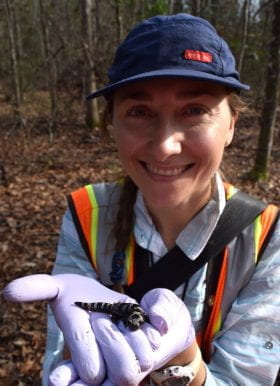
Michel Ohmer
Assistant Professor, Department of Biology, University of Mississippi
Michel is an ecophysiologist and disease ecologist who studies the impact of global change on host-pathogen interactions. She seeks to understand why some species and individuals are at a greater risk of disease than others and use this information to predict population-level impacts. Michel’s research explores these questions using amphibians and a widespread fungal pathogen, Batrachochytrium dendrobatidis (Bd), to better understand how the host-pathogen relationship is shaped by host physiology, and how environmental change can alter this relationship.
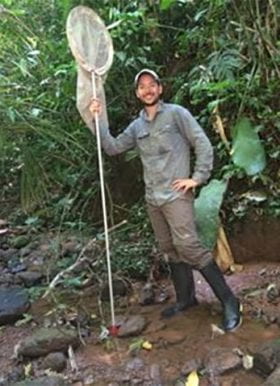
Brett Seymoure
Assistant Professor of Biological Sciences, University of Texas at El Paso
Brett Seymoure studies how natural and anthropogenic lighting affects myriad organisms. Brett has studied how tropical butterflies have evolved in different rainforest light environments and how gas developments in the Rocky Mountains affect mammals.
Learn more about the Seymoure Behavioral and Sensory Ecology Lab at University of Texas at El Paso.
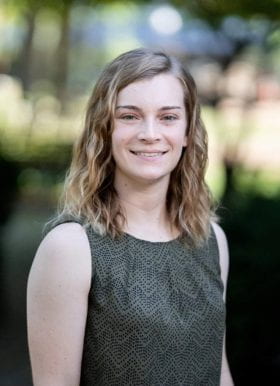
Stella Uiterwaal
Postdoctoral Researcher, Smithsonian Conservation Biology Institute
Stella Uiterwaal is a community ecologist focusing on predator-prey interactions. Her research combines experimental and field-based approaches to understand the causes and consequences of predation. Stella has previously developed new methods for quantifying predators’ diets and foraging rates.
Learn more about Stella’s work.
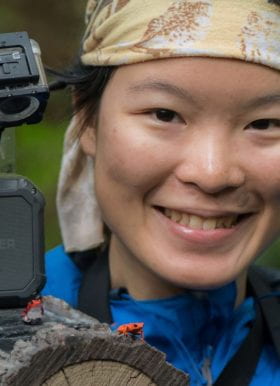
Yu-san Yang
Assistant Professor, Department of Integrative Biology, University of South Florida
Yu-san Yang is an evolutionary ecologist broadly interested in animal behavior, sexual selection, learning, and color polymorphism. Yang’s research has demonstrated that behaviors shaped by learning can be a powerful driving force in evolution. Yu-san has studied frogs in which populations differ in color to investigate whether they also differ in behavior and whether these differences lead to divergence into different species.
Learn more about the Yang Lab at University of South Florida.